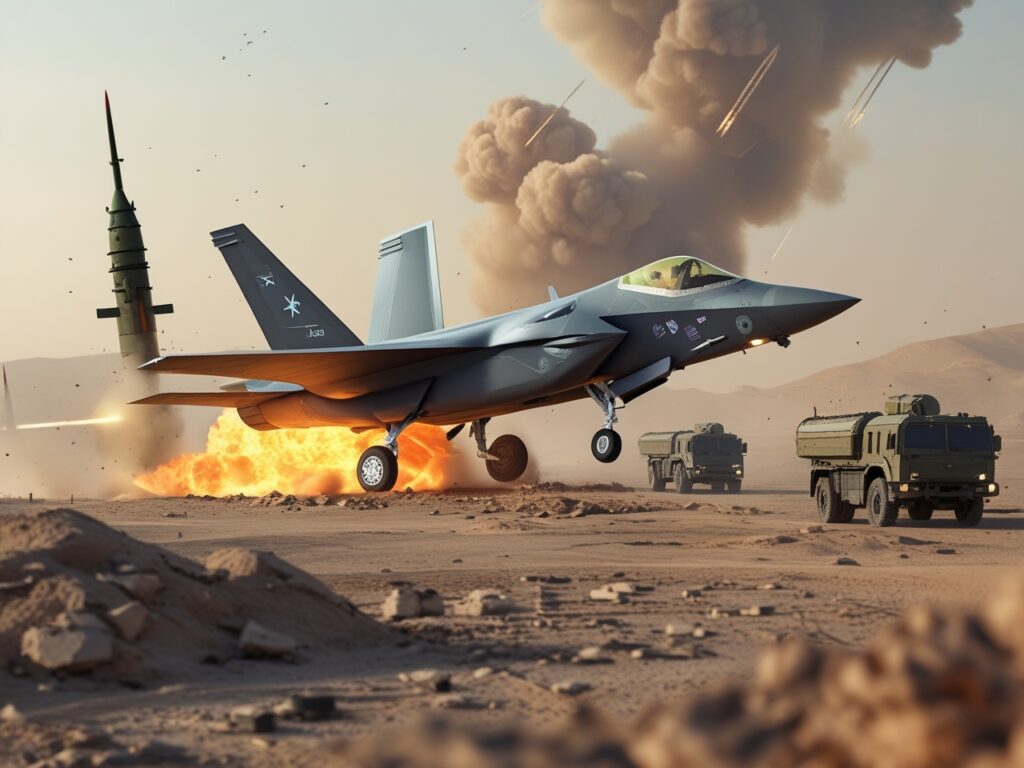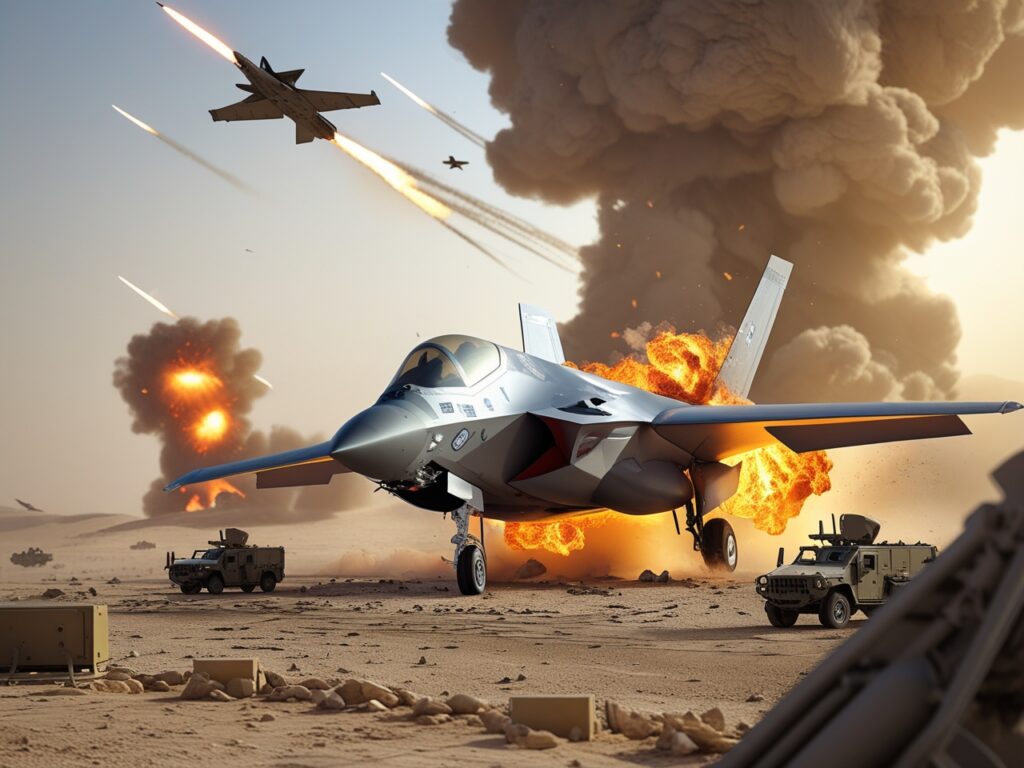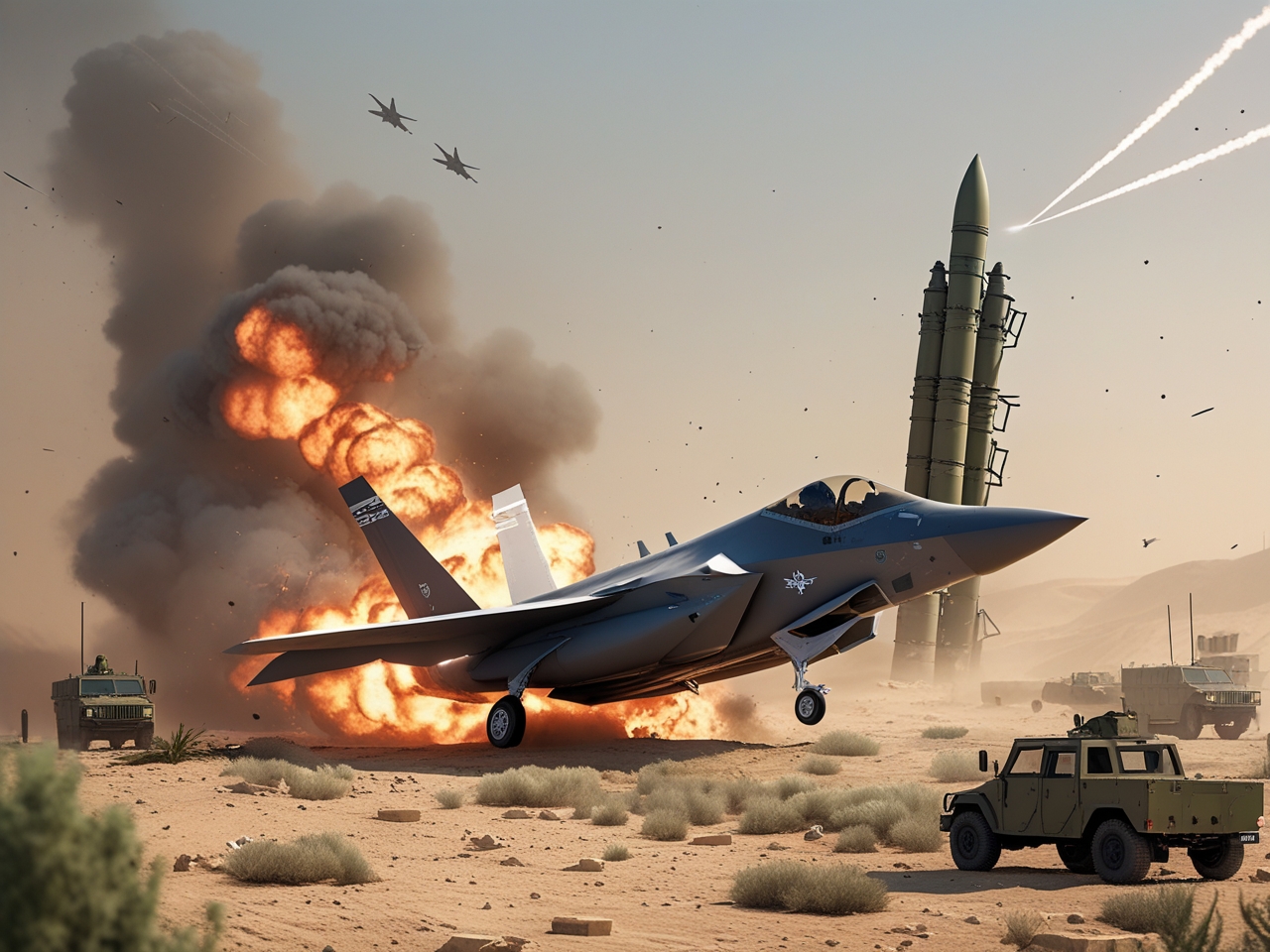June 14, 2025
In another rapid escalation of hostilities between Israel and Iran, Third Israeli fighter jet shot down in Iran , reports emerged that Iranian air defenses had downed a third Israeli F-35 fighter jet over western Iran on Saturday, June 14, 2025. If confirmed, this incident represents an extremely important moment in the ongoing conflict between Israel and Iran; while significantly increasing regional tensions and concerns about further military escalations in the Middle East.

Incident Notes: What Happened?
Iran’s state news agency, IRNA, stated an Iranian air defense system intercepted and shot down an Israeli F-35 jet patrol flying near the Iran-Iraq border. Military sources supporting the Iranian military say that the pilot ejected and was captured by Iran’s Army Ranger Corps. The incident purportedly occurred in response to Israeli airstrikes against Iranian nuclear and missile sites, which Iranian officials have lauded as showing Iranian advances in air defense.
The Israeli Defense Force (IDF) has denied the claims saying it’s “propaganda” and “lies with no truth”. In a recent statement, an IDF spokesperson said, “No Israeli aircraft were lost in Iranian airspace, and if reports say otherwise, that is in the context of a continual Iranian disinformation plan.” While the IDF dismissed the claims, online videos on social media including X circulated which supported the Iranian narrative, including unverified visuals of a pilot parachuting from a downed jet over Tabriz.
The incident appears to follow reports from Iran’s Tasnim news agency on Friday, June 13, 2025 about two additional Israeli fighter jets allegedly being shot down during airstrikes on Iranian territory. The earlier reports also referred to an Israeli pilot being captured, with no reports of independent verification.
Conflict Context
The recent event comes in the face of marked escalation in hostilities between Israel and Iran. On Friday (April 21), Israeli forces carried out airstrikes against Iranian nuclear and missile targets, reportedly killing many people. There were more than 104 reported deaths, with Iranian authorities claimed that the deaths included, “high ranking military commanders and high-ranking scientists,” and nearly 380 additional injuries. In reprisal, Iran has launched a missile barrage at Israeli cities on Friday night which has resulted, according to Israeli officials, in three people dead and more than 170 injured.

Moreover, the downing of a third Israeli jet could, if true, indicate Iran’s air defense systems are catching up with Israel’s dominance in the air. Reports of advanced systems, which Iran has claimed survived Israeli attempts at destruction, has raised questions about the changing military balance in the region.
Regional and Global Implications
The reported shooting down of an Israeli F-35 is likely to have great implications for not only the Middle East but also the world. Some analysts suggest that the incident could:
- Exacerbate Israel-Iran Relations: If the current tit-for-tat strikes and counterclaims continue, there is a possibility that tensions could spiral into a broader conflict that may draw in regional allies as well as global powers.
- Alter the U.S.-Iran Relationship: With the United States being a key ally of Israel, the Iranian claims of shooting down advanced U.S. supplied F-35 jets may jeopardize the already tenuous diplomatic relationship and effect the ongoing nuclear negotiations.
- Re-evaluate Military Approaches: The incident emphasizes the increasing importance of air defenses in conflict, encouraging both countries to re-evaluate their military strategies.

Unverified Claims and the Information War
While Iranian outlets would be quick to announce the purported downing of the Israeli jet, the lack of independent verification leaves the validity of the reports in question. We have all read or seen social media, especially X, saturated with both sides of the conflicting narratives, particularly with viral posts on behalf of Iran, which have also drawn rebuttals from the Israeli government. The risk of disinformation is prevalent according to the experts as both countries vie for public opinion during a time of war.
“In conflicts such as this one, the information war will be just as important as the military war. Both sides are also using media platforms to demonstrate they are stronger than their adversary and diminish the supporting public opinion. Until we see evidence, these claims are questionable,” said Dr. Sarah Al-Masri, a Middle East security analyst.

